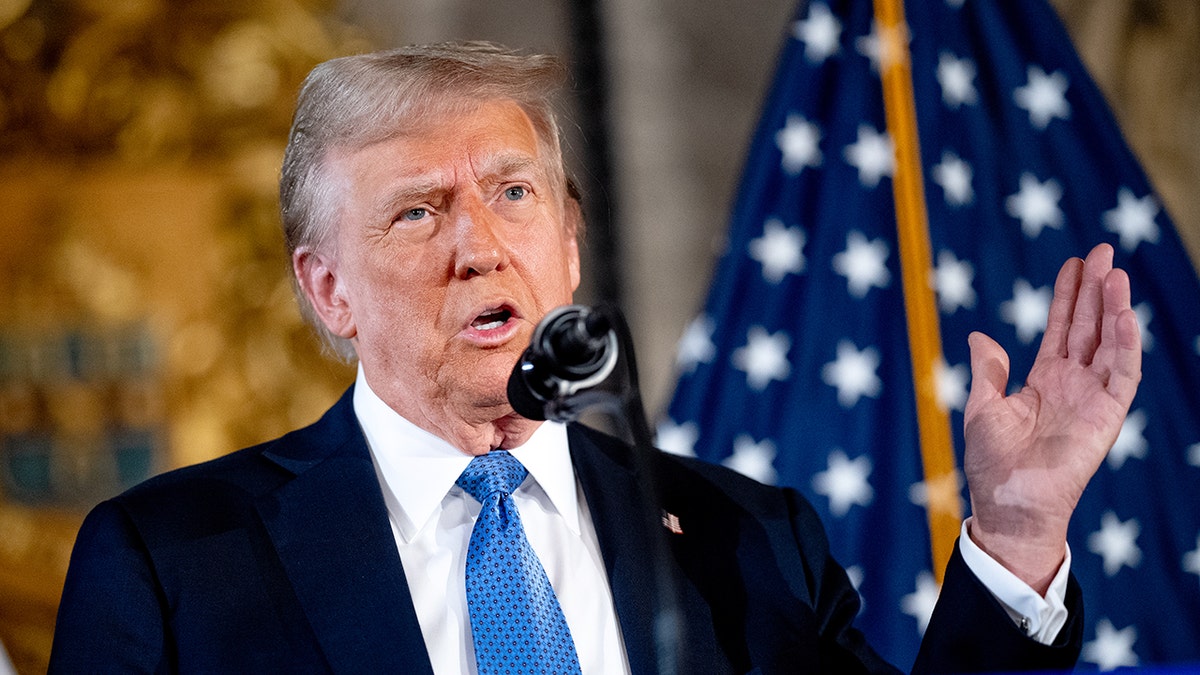
Image Source:
Source: foxnews.com
Image content: The image features President Donald Trump speaking into a microphone, with his right hand raised in a gesture. He is attired in a black suit jacket, white shirt, and blue tie with darker blue dots. The background is blurred, but an American flag is visible to the right of the president.
Summary
Canadian Prime Minister Mark Carney met with US President Donald Trump, firmly rejecting Trump's suggestion that Canada become the 51st US state. Despite a strained relationship, the meeting was cordial, with discussions on trade and tariffs. Carney's strong response was seen as a boost to his party's election prospects.
Key Points
- Mark Carney told Trump that Canada 'won't be for sale, ever'
- Trump's comments on Canada becoming the 51st US state were seen as 'foreign interference' in the Canadian election
- Carney's Liberal Party won the general election, partly due to Trump's remarks